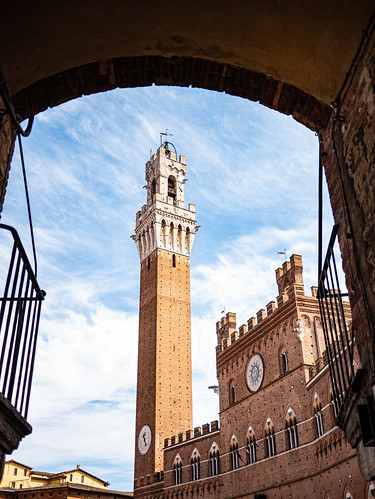by Liz Anderson on August 31, 2023
(This is another post in my series on Michigan politics, broadly construed.)
Why am I thinking about 1961? Because that was one year before University of Michigan students published the Port Huron Statement, a pivotal document that laid out the intellectual foundations of New Left student activism. (Excellent UM exhibit on the statement here.) I am wondering whether UM students today, and U.S. university students more generally, are on the cusp of a generation-shaping leftist activist mobilization that will fundamentally transform U.S. politics, as UM students and university students more broadly were in 1961.
[click to continue…]
by Maria on August 31, 2023
Quick round-up of books I read for fun over the summer. I’m mostly reading books about ecology and network design for other things, so perhaps my fiction brain isn’t quite optimised for full immersion at the moment, but I’ve not really sunk deep into anything I’ve read for some time.
‘You made a fool of death with your beauty’ is a novel by Nigerian writer Akwaeki Emezi about a bereaved young American artist who’s just started dating again. A lot of it happens in an unnamed Caribbean island where there’s a love triangle, an engaging and convincing art project and a captivating older man at the height of his creative and personal game. I really enjoyed how it concerns Black people and Blackness, centred on love in unexpected places and also the chemistry of two artists in different fields and different generations, how each opens up a world to the other. Plot-wise, it’s mostly about how two people figure out the emotional and familial constellations required for them to be together, so that felt slightly anticlimactic towards the finish. But I don’t often read romance, and, well, it is bound to be about whether the protagonist’s couple makes it. And it was good to read about Black joy and queer friendships and love without the gathering dread of older narratives where someone must be about to take a massive fall. The only slightly off-putting thing – and perhaps this is generational – is the rather YA-ish first person, repetitive self-doubting. That’s a quibble. The language, the setting, clothes, celebrations and dialogue are all wonderful. Solid recommend. [click to continue…]
by Ingrid Robeyns on August 28, 2023
 Over the last year, I’ve been working on a trade book on limitarianism (USA, UK, NL), on an edited volume on pluralism in political philosophy by bringing various (including ‘non-western’) perspectives together around questions of economic and ecological inequalities (forthcoming with OUP but not quite there yet), and on an edited academic volume with political philosophy papers on limitarianism.
Over the last year, I’ve been working on a trade book on limitarianism (USA, UK, NL), on an edited volume on pluralism in political philosophy by bringing various (including ‘non-western’) perspectives together around questions of economic and ecological inequalities (forthcoming with OUP but not quite there yet), and on an edited academic volume with political philosophy papers on limitarianism.
Perhaps not surprisingly, I strongly advice anyone not to follow that example: one book to work on is already more than enough to concentrate on. The circumstances that created this situation in which I found myself editing two books and writing a third one are probably rather rare – trying to deliver outcomes promised in a grant application against the background of a pandemic, combined with some significant professional disruptions beyond my control etc. But while I felt like a juggler for some time, the good news is that the first and the third are now done (though the trade book is not out in English before February 1st), and I’m happy to share with you the link to the open access, hence free to download, book with academic philosophical papers on limitarianism. It’s a combination of reprints and new material, and the essays generally assume some background knowledge in contemporary normative political philosophy. I’m hoping this will be interesting for students and scholars of the philosophy of distributive justice, and related areas. Also, the entire volume is currently being translated into Spanish, and will also be published Open Access before too long. The trade book – although very broadly on the same topic, is a very different beast, about which more some other time.
by Chris Bertram on August 27, 2023
by Ingrid Robeyns on August 23, 2023
I’ve been thinking a lot lately about how society, and people in my profession (academics), think about activism. It seems to me that there is a widespread insufficient appreciation for the importance of activists in the world; often that attitude is even plainly dismissive. If this is true, then why is this the case, and why is this wrong?
First, I should clarify that I am only talking about activists for whom we have strong reasons to see the ultimate goal they strive for as justified, and the means they employ as reasonable. Hence, I’m only talking here about activists who fight against injustices, or want to make the world a better place. Now I realise this is a very tricky delineation, because in the world as it is, there will be people using activist means and tactics to advance immoral, or at least illegitimate goals, such as racists wanting to keep their settler-society predominantly White or Christian. And I also realise that even if we put those clear cases of activism for immoral causes aside, we will end up disagreeing about borderline cases, where multiple values and principles are at stake and people disagree whether the goals the activists are striving for is laudable or not (think of some cases where it might be seen that activists try to restrict the freedom of speech of those they accuse of using hate-speech). [click to continue…]
by Chris Bertram on August 20, 2023
by John Q on August 19, 2023
Today, I signed up for Bluesky and Threads, taking a brief look at each of them, and announced my final departure from Twitter, to take place when Musk removes the Block feature[1]. Meanwhile I’m still using Mastodon as my main microblog along with CT and my personal blog for long-form blogging. I’m trying to maintain a couple of Substack newsletters and commenting on Substack Notes. And I still post occasionally on Facebook.
This is clearly too much, but it reflects the transition from the Facebook-Twitter era of “social media” (with blogs as a holdover from a more optimistic past) to whatever comes next. I’m going to make the case for a combination of Mastodon and Substack as the way forward.
[click to continue…]
by Harry on August 17, 2023
by Eric Schliesser on August 16, 2023
A few weeks ago I read Ecotopia: The Notebooks and Reports of William Weston by Ernest Callenbach (1975) for the first time. It is worth doing so if you are one of the few who have not because it very neat to see how ideas around ecological sustainability were conceived back then. In what follows, I will try to avoid major spoilers, although I doubt this is the kind of book that can be ruined by spoilers.
There is a lot to say about the book’s racial and sexual politics (and political economy), its understanding of masculinity, and its implied critique of American militarism and the capture by pharmacological-industrial complex of the political system; but while reading it I was more struck by its implied claims about the nature of emotional self-disciplining and self-regulation in modern capitalist societies. My thoughts on it are inchoate and hesitant, but the attempt to come to terms with them was triggered by a recent post (here) by our very own, Maria Farrell, at Crooked Timber (and the subsequent discussion by our readers.)
Before I get to details, one methodological observation. I tend to conceive of Utopian fiction of having three, potentially mutually reinforcing characteristics. First, it can sketch the contours of a possible society worth having (or avoiding); second, it can sketch the pathway or slippery slope from here to there. And, third, it can magnify the function or effects of existing social institutions and mores that are so familiar that we ordinarily may fail to notice them at all. This third characteristic is what I like to call ‘the oblique mirror’ function of utopian work in which a social mechanism is enlarged and we can contemplate and discuss it.
[click to continue…]
by Eric Schliesser on August 14, 2023
In my first post (here) on Mary Harrington’s (2023) Feminism Against Progress, I focused on her views on the family and suggested that not unlike Yoram Hazony (in his (2022) book, Conservatism: A Rediscovery), she rejects the patriarchic ‘nuclear family’ embraced by American, Christian-ethno-nationalists. Instead they both defend what they call the ‘traditional family,’ which in Harrington’s argument involves commitment to joint projects centered on home-based work and family. As she puts it, “households formed on this model can work together both economically and socially on the common business of living, whether that’s agricultural, artisanal, knowledge-based or a mix of all these.” (p. 21)
There is also an important contrast between Harrington and Hazony. As Hazony recounts in Chapter IX, “Some Notes on Living a Conservative Life” of Conservatism, rejection of the morality of abortion as a student was a major pathway into a more conservative political orientation for him. This does not seem to be the case for Harrington (who notes that abortion plays out differently in the US and the UK). Harrington’s transformative conversion moment (rejecting ‘progress theology’) seems to have been much later in life during her sense of isolation in a commuter town after a near death experience in giving birth (pp. 3-4; 24; 27-28). [click to continue…]
by Chris Bertram on August 13, 2023
by Maria on August 12, 2023
I was recently in Stansted Airport, queueing in a low-ceilinged, quasi-temporary structure to enter the departure area for a Ryanair flight. There were two queues; the ‘priority queue’ which passengers had paid extra to join, and the ordinary one, but just one airport employee covering both, toggling stressfully between two irritated groups. Each time she switched, she left a line of people to wait. As I neared the front of the ordinary queue, she told a man with a wheelie case that he’d have to pay extra as his bag was too big. He objected and put it into the measuring frame. It fit easily, but the check-in woman refused to accept this, and demanded an extra £40. The man objected again and asked why the rules weren’t being followed, but ultimately paid up as he had no choice. He was clearly upset, but never raised his voice, used insulting or abusive language or made threatening gestures. He simply didn’t supply the meekness the very stressed out airport employee desired. As he moved into the boarding area, she called after him that she could have him taken off the plane, but it was very full and noisy, and he either ignored this or didn’t hear it and took a seat near the door. Both lines were now even longer, and she was dealing with the 200-odd passengers alone.
[click to continue…]
by Paul Segal on August 12, 2023
Most visitors to Argentina are attracted by its famous meat and wine. Personally, I come for the Freudianism and Marxism. I grew up in north west London in a family of socialists and psychoanalysts, acutely aware of the contempt with which most of Great Britain held both of those vocations in the late 1980s. So while I spoke barely a word of Spanish when I first visited Buenos Aires in 2003, I had an extraordinary feeling of coming home. Now, twenty years later, my children are half-Argentine, and we’ve just had a semester in Buenos Aires, much of it spent in the traditional past time of discussing the personal and the political over endless coffees (and, I admit, also consuming plenty of meat and wine).
Argentina probably has the most psychoanalysts per capita of any country in the world. I would guess that every Argentine I know is in or has had therapy – at least, I’ve never met an Argentine who told me they never had it, and the topic usually comes up. What is clear is that they have a remarkable love of admitting to and talking about experiences of trauma, its causes and its effects, both at the personal level and at the social level. I’ve mentioned before the historian John Womack’s argument that Latin Americans are subject to chronic post-traumatic stress disorder, due to the ongoing stresses of poverty, violence, and political oppression. One of my in-laws recounts the story of being stopped by a soldier in Buenos Aires in the late 1970s, under the military dictatorship, and the soldier pointing his rifle at her baby while he waited for her to produce her papers. 45 years later her voice still shakes as she describes the experience. Trauma is endemic and enduring, and also quite plausibly a root of the dynamism and creativity, the refusal to meekly accept the status quo, that visitors to Argentina often extol.
[click to continue…]
by Gina Schouten on August 10, 2023
At the grocery store the other day, when my five-year-old made an impassioned plea for a certain kind of cereal, I said, “nah, that one’s too sweet for breakfast.” He responded with a stern reprimand: “Mom, you shouldn’t yuck my yum!”
I was pretty sure that admonishment didn’t apply here, but I heroically let it go.
[click to continue…]
by Eric Schliesser on August 9, 2023
Late July, The Wall Street Journal published five short pieces under the title, “Have We Ruined Sex?” Among the five pieces was one by Mary Harrington. In her contribution she argues that the sexual revolution has mainly benefitted the “entrepreneurial class.” Since this appeared not in The Nation but WSJ, I was amused, so I decided to read her (2023) Feminism Against Progress.
Feminism Against Progress is reactionary, but it cites Karl Polanyi approvingly and also rails against Adam Smith and Hayek; the political right is indeed transforming. (Harrington spoke at this year’s National Conservatism Conference.) As the mention of Polanyi hints at, Harrington’s sensibility is, in many ways, a culturally traditional, social democratic left (and I was not surprised to find a piece of hers on the SDP blog here.) I expect Keith Starmer’s Labour party (which is by no means liberal in sensibility) to find use for her downstream.
[click to continue…]



